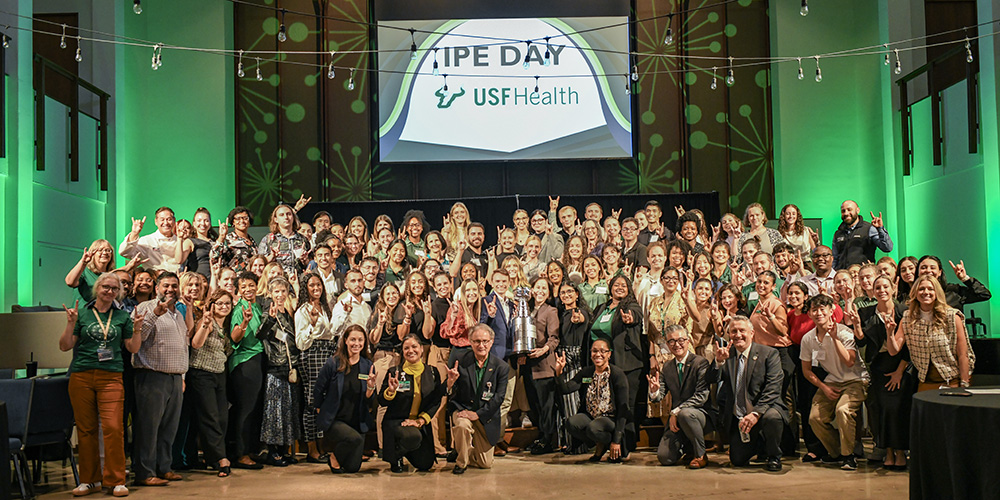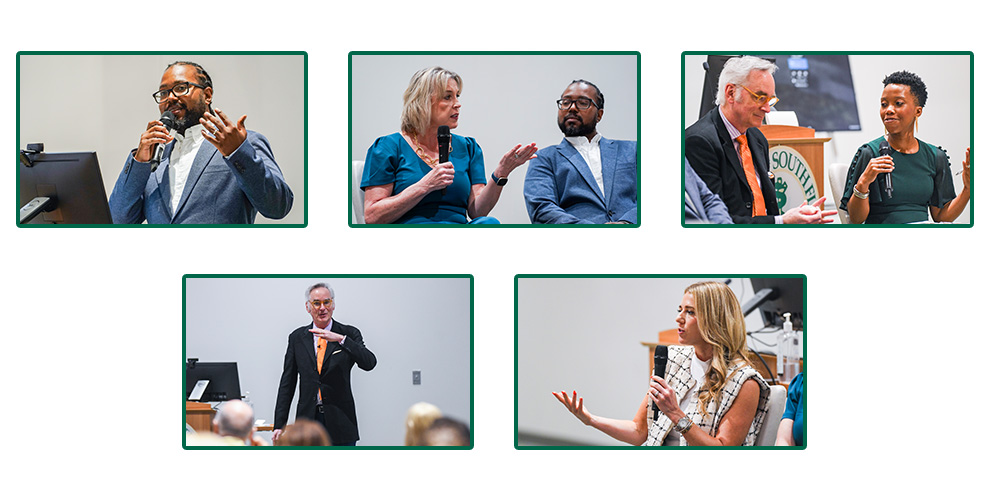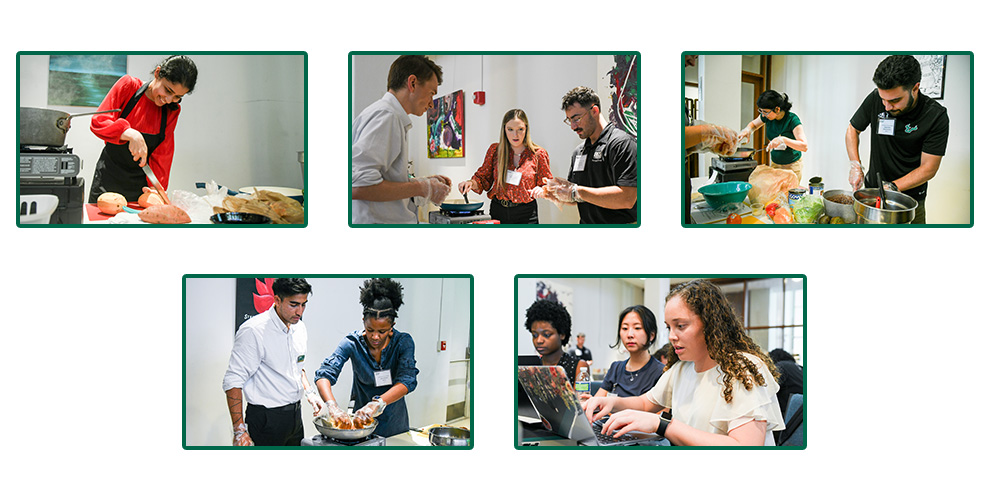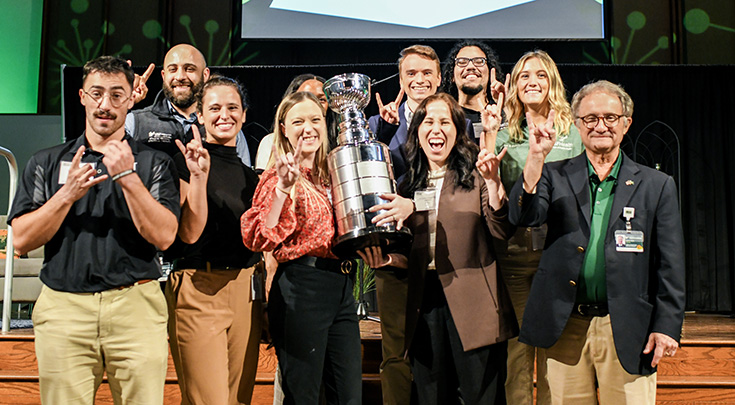
In the U.S., more than 13 percent of households suffer from food insecurity at some point during the year, forcing many families to skip meals or go without eating. Others live in food deserts or possess diets with poor nutrition, leading to greater levels of illness and reduced health outcomes.
These pressing challenges were among the topics headlining USF Health’s seventh Interprofessional Education (IPE) Day, an annual event where interdisciplinary health experts from across the country join USF students, staff and faculty to explore the various ways social determinants can impact a community’s health.
This year’s IPE Day showcased a lineup of internationally renowned scientists and researchers as well as a team-based competition to demonstrate how professionals from all backgrounds can work together to address issues of food insecurity, access to nutritious foods and culinary medicine.
In his opening remarks, Haru Okuda, MD, FACEP, FSSH, executive director of the Center for Advanced Medical Learning and Simulation and associate vice president of the Office of Interprofessional Education and Practice, emphasized the importance of collaborative teams to achieving positive patient outcomes.
“The complexities of modern health care require a new way of thinking – a way of thinking that emphasizes teamwork, communication and mutual respect among all health care workers,” Dr. Okuda said.

Speakers from the morning sessions included health professors from Harvard University, the University of Chicago and George Washington University, as well as an Emmy Award-winning journalist and vegetarian cookbook author, a president of a national nutrition academy and a social media influencer. With their unique perspectives, they discussed the effects of food scarcity and living with food insecurity as well as the social determinants that can lead to malnutrition and how to build nutrition plans with limited resources.
Bryan Bognar, MD, MPH, FACP, vice dean of the MCOM Department of Medical Education and chair of this year’s event, highlighted the relation of nutrition and food access to achieving positive health outcomes and exhorted attendees to apply the lessons they learned in their communities.
“We know in our hearts and do appreciate that health eating habits are essential to preventing and managing chronic illnesses. This is something we must address in a meaningful and practical way,” said Dr. Bognar. “As community members and health care providers, educating ourselves more about nutrition is one important step. Teaching our students is another. But preparing and empowering all of us to educate others is our key goal and it’s one that will have a lasting impact.”
Following the morning sessions, students from across several USF colleges assembled at the Portico Café for a competition described as “IPE Day meets iron chef,” where students were divided into nine interprofessional teams with a dietary consultant and faculty member serving as group facilitator. Students were assigned one of three roles within their teams: chef, PowerPoint presenters and menu developers.

The menu developers had to carefully study the social determinants and physical co-morbidities that would help guide them as they build their recommendations for recipes. The team chefs took that information and prepared a meal to be judged on taste and presentation. Meanwhile, the PowerPoint presenters prepared a concise brief on their patient that included background information, social determinants, recommendations on recipes and resources for where to find the necessary ingredients.
After a hard-fought competition, Team 1 was named the IPE Day 2024 champions for presenting the case of a 45-year-old mother of two diagnosed with Type 2 diabetes and hypoglycemia and who frequently runs out of food. The winning team set three specific goals for their case study: stabilize her blood sugar, inform her of locations where she can access affordable food and create simple, kid-friendly, low-cost recipes.
Keri Allen, a second-year medical student and PowerPoint presenter for team 1, said that she cherished the opportunity to expand her knowledge of disparities in health care and valued the time with students from other fields.
“I’ve had a basic understanding that nutrition is a key factor in someone’s health, but did not fully appreciate how social determinants play a crucial part in access to nutritious foods for certain populations,” said Allen. “As physicians, we are always lifelong learners and today was a great example of that. Being humble and staying true to the oath will drive us to always be better and provide more comprehensive and culturally competent care for our patients.”

Team 1
· Group Facilitator: Amanda Tritsch, LAT, ATC, CSCS, School of Physical Therapy and Rehabilitation Sciences
· Keri Allen, Morsani College of Medicine
· Sandra Accilien, School of Social Work
· William Bresette, Physician Assistant Program, Morsani College of Medicine
· Theoni Chitty, Athletic Training Program
· Meaghan Dunleavy, College of Public Health
· Diego Dulanto Falcon, College of Public Health
· Joshua Lopez, School of Physical Therapy and Rehabilitation Sciences
· Jena Nicole Sempek, College of Pharmacy